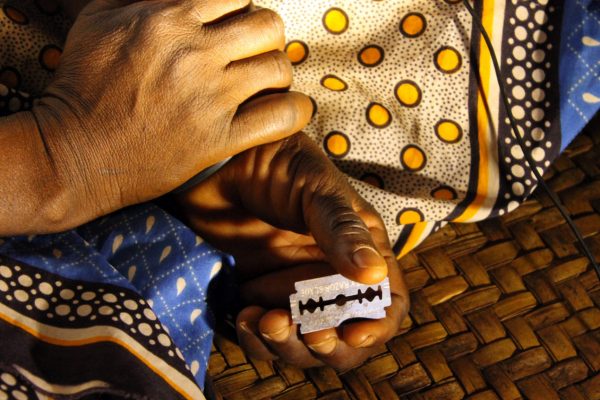
The experts also urged the Federal Government to implement laws against FGM and ensure that it is banned in all cultures across Nigeria to bring an end to the practice in the country.
The expert who spoke in exclusive interviews with PUNCH HealthWise in commemoration of this year’s event said the FGM is an unacceptable harmful practice and a violation of women’s and girls’ basic human rights.
The theme of the 2023 commemoration is “Partnership with Men and Boys to Transform Social and Gender Norms to End Female Genital Mutilation.”
Marked globally on February 6, the day was established by the United Nations General Assembly in line with the 2030 Agenda for Sustainable Development.
The day provides the opportunity for governments, member states, civil society organisations, development partners, activists, and other relevant stakeholders to raise awareness, renew commitments and advocate for the abandonment of the practice.
Speaking with our correspondent, a renowned Obstetrician and Gynecologist, Prof. Oladapo Ladipo, said cutting the clitoris should be discouraged by parents.
Prof Ladipo who is President/Chief Executive Officer of the Association for Reproductive and Family Health said, “There is no reason for tempering with the external genitalia of a female child like cutting or squeezing the clitoris.
“There is no need at all. Clitoris has no negative effects on childbirth and if the baby’s head touches the clitoris, it is not going to do anything to the baby as far as I know and as far as science knows.
“Circumcision of the girl child should be discouraged even by the government. It does not confer any known benefit to the female child. Secondly, it can be very traumatic and the complications can be fatal sometimes. So, circumcision of the female child should be banned in any culture because there is no rationale for it.
Further warning of its dangers, the gynaecologist said FGM was unhealthy and violates the rights of women.
He urged the federal and state governments to protect the rights of women and girls from all forms of violence and abuse by enforcing laws against FGM.
FGM is a procedure involving partial or total removal of external female genitalia or another injury to the female genital organ for non-medical reasons. The act is globally recognised as an extreme violation of the rights of women and girls.
In 2015, the Federal Government signed into law the Violence Against Persons (Prohibition) Act, which prohibits FGM and provides for a set of punishments for perpetrators of the harmful practice.
According to the United Nations Children’s Fund, FGM remains widespread in Nigeria.
Data from UNICEF indicates that with an estimated 19.9 million survivors, Nigeria accounts for the third-highest number of women and girls who have undergone FGM worldwide.
FGM, the UN Women says affects 200 million women globally, with dire consequences ranging from debilitating pain to childbirth complications to death.
“Today, UN Women is recommitting to ensuring that laws are not only passed against the practice but that governments are taking action to implement those laws”, the agency said.
A General Medical Practitioner, Dr. Tunji Akintade, called on the government at all levels to enforce laws violating the rights and dignity of women and girls.
He stated that the new trend of FGM practice, commonly referred to as the ‘medicalisation of FGM,’ was unacceptable, asking the public to report any medical practitioner found in the harmful practice to the Medical and Dental Council of Nigeria for disciplinary action.
“Medicalising the practice of FGM does not eliminate the danger it poses to women, as it still removes and damages healthy and normal tissue and interferes with the natural functions of a girl’s body”, he said.
He noted that the harmful practice has a physiological impact on the lives of women and girls.
According to the World Health Organisation, FGM has no health benefits, and it harms girls and women in many ways.
Data from the WHO shows that FGM causes multiple sexual health problems for the survivors, such as damage to a female’s anatomic structures that are directly involved in sexual function, and can therefore have an effect on the victim’s sexual health and well-being.




